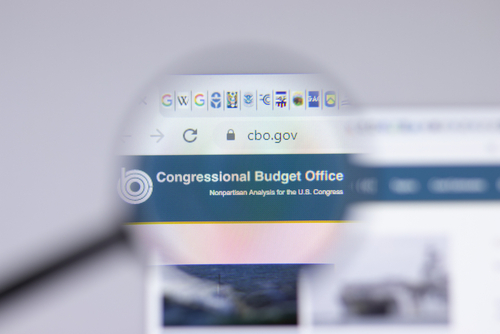U.S. Sens. Elizabeth Warren (D-MA) and Michael Bennet (D-CO) joined U.S. Reps. Ro Khanna (D-CA) and Pramila Jayapal (D-WA) to reintroduce legislation to provide policymakers with data on the real-world impacts their policies have.

The Congressional Budget Office (CBO) Fiscal Analysis by Income and Race (FAIR) Scoring Act would allow legislators to consider the impact of bills on people of all socioeconomic backgrounds and design policies that advance racial and economic equity, the lawmakers said.
“We must do more to close the wealth gap in America that continues to widen across race and income,” Warren said. “This bill is a first step towards that end by providing lawmakers with the data they need to make informed decisions to advance racial and economic justice in future legislation.”
Currently, the CBO is required to produce a cost estimate for nearly every bill approved by a full committee in either house of Congress. The cost estimate describes how a proposal would affect the federal budget for a 10-year period. Law makers said that while the cost estimates provide insight into the legislation’s fiscal impact, there is limited information about the distributional impacts across racial and income groups. Officials said the lack of reliable information about the potential effects of legislation inhibits effective understanding of how federal policies impact income gaps and racial disparities, and whether the policies are making disparities worse or improving them.
The legislation would require the CBO to estimate the distributional impacts by race and income for bills that have a gross budgetary effect of at least 0.1 percent of GDP in any fiscal year; require the CBO to provide these scores to relevant congressional committees; and to require the CBO to prepare a report describing possible methods for conducting distributional analyses by gender.
“When legislation is proposed, it is critical that we know all of the impacts of it, including on people who have been disadvantaged as a result of years of damaging policies,” Jayapal said. “While the CBO currently scores the financial impacts, that leaves major question marks around what communities are affected.”